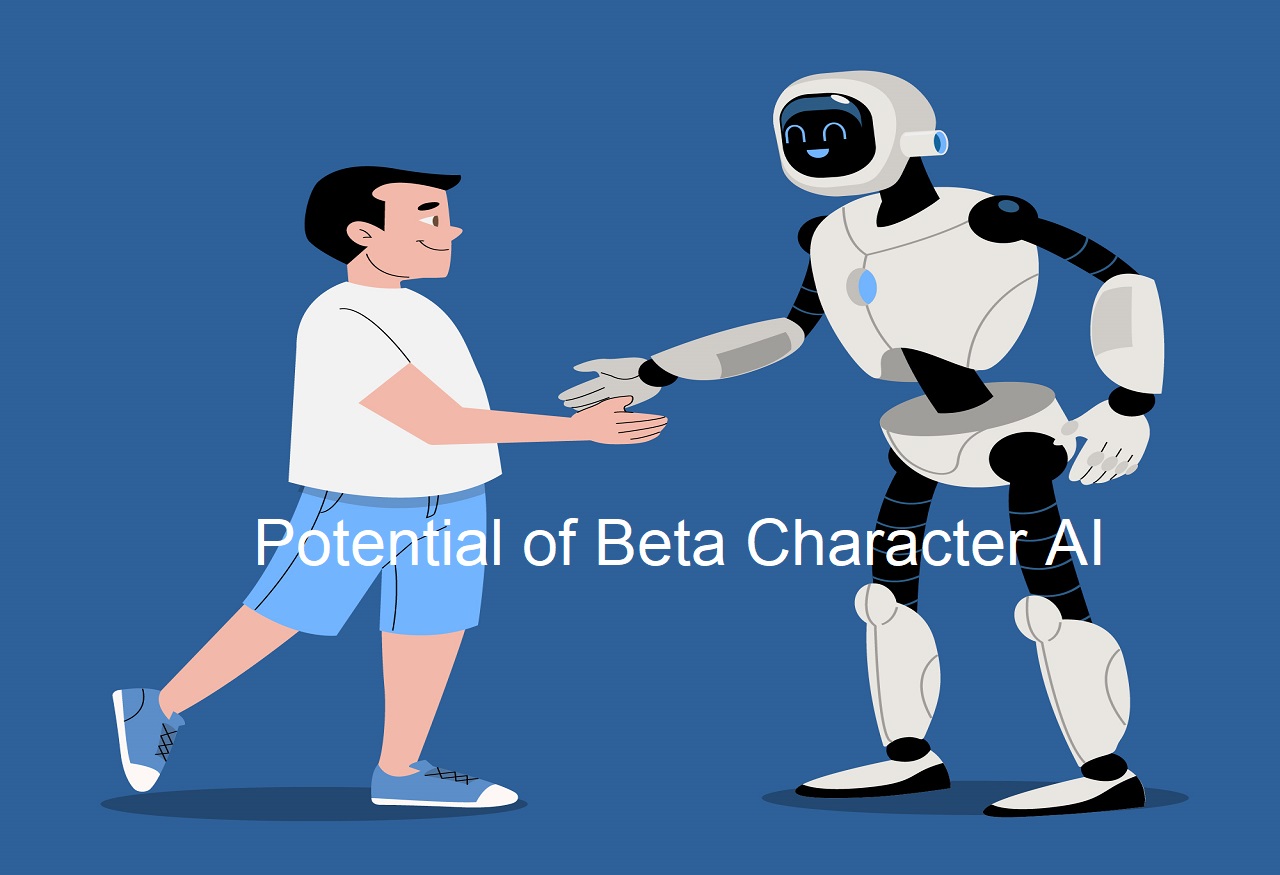Potential of beta character AI in the ever-evolving landscape of artificial intelligence, a groundbreaking innovation has emerged – Beta Character AI. This cutting-edge technology is reshaping the way we interact with machines pushing. The boundaries of what was once thought possible. We will delve into the depths of Beta Character AI, exploring its features, applications, and the transformative impact it promises on various industries.
Table of Contents
ToggleUnderstanding Beta Character AI
Beta Character AI represents a significant leap forward in the realm of artificial intelligence. Unlike traditional AI models that focus solely on task-oriented functions. Beta Character AI incorporates a nuanced understanding of human emotions and social cues. This enables machines to not only perform tasks efficiently but also engage in more natural and empathetic interactions with users.
Key Features of Beta Character AI
- Emotional Intelligence Integration
One of the defining features of Beta Character AI is its ability to recognize and respond to human emotions. By incorporating emotional intelligence algorithms, machines equipped with Beta Character AI can interpret facial expressions, tone of voice, and other non-verbal cues. This capability enables a more authentic and emotionally resonant interaction between humans and machines.
- Adaptability and Learning
Beta Character AI is designed to learn and adapt continuously. Through machine learning algorithms, these systems evolve over time, becoming more attuned to individual user preferences and behavior. This adaptability ensures a personalized and dynamic experience, catering to the unique needs of each user.
- Natural Language Processing Advancements
Leveraging state-of-the-art natural language processing, Beta Character AI excels in understanding and generating human-like text. This enables seamless communication, making interactions with machines feel more conversational and less transactional. As a result, the user experience becomes more intuitive and user-friendly.
Applications Across Industries
- Customer Service Revolution
Beta Character AI is poised to revolutionize customer service by providing a more empathetic and responsive interface. Call centers and online support systems can benefit from AI-driven agents capable of understanding customer emotions, thereby improving customer satisfaction and loyalty.
- Education Enhancement
In the realm of education, Beta Character AI holds great promise. Virtual tutors equipped with emotional intelligence can engage with students on a deeper level, adapting teaching styles based on individual learning patterns. This personalized approach has the potential to transform the education landscape.
- Healthcare Companion
Beta Character AI can play a vital role in healthcare, serving as a companion for patients. From providing emotional support to monitoring medication adherence, AI-driven characters can enhance the overall well-being of individuals, especially in cases of chronic illnesses or mental health support.
- Entertainment and Gaming
The entertainment industry is set to undergo a significant transformation with Beta Character AI. Video games, virtual reality experiences, and interactive storytelling will become more immersive as characters within these mediums exhibit a heightened level of emotional intelligence, creating a more engaging and realistic environment.
Challenges and Ethical Considerations
While Beta Character AI brings forth a myriad of opportunities, it also raises important challenges and ethical considerations. Privacy concerns, potential misuse, and the need for transparent algorithms are crucial aspects that must be addressed to ensure the responsible development and deployment of this technology.
- Privacy Concerns
The collection and analysis of user emotions raise concerns about privacy. Striking a balance between providing personalized experiences and safeguarding user data is essential to build trust in Beta Character AI applications.
- Algorithmic Bias and Fairness
Ensuring that Beta Character AI remains unbiased and fair in its interactions is crucial. Developers must actively work to identify and rectify any biases in the algorithms to prevent discriminatory outcomes, especially in sensitive areas like healthcare and education.
- Transparency and Explicability
The opacity of AI algorithms can be a barrier to trust. Developers need to prioritize transparency and explicability, allowing users to understand how AI systems make decisions and respond to their inputs.
The Future of Human-Machine Interaction
As Beta Character AI continues to evolve, the future of human-machine interaction looks promising. The integration of emotional intelligence into AI systems opens up new possibilities for creating technology that not only performs tasks but also understands and responds to human emotions in a meaningful way. The ongoing research and development in this field will likely lead to even more sophisticated and socially aware AI systems.
Conclusion
Beta Character AI represents a significant stride towards creating AI systems that understand and respond to human emotions. The applications across various industries are vast, promising a more personalized, empathetic, and engaging interaction between humans and machines. However, with great innovation comes responsibility. Addressing ethical considerations and ensuring transparency are essential steps to harness the full potential of Beta Character AI while maintaining trust and integrity in its deployment. As we navigate this transformative era of AI, one thing is certain – the landscape of human-machine interaction will never be the same again.











